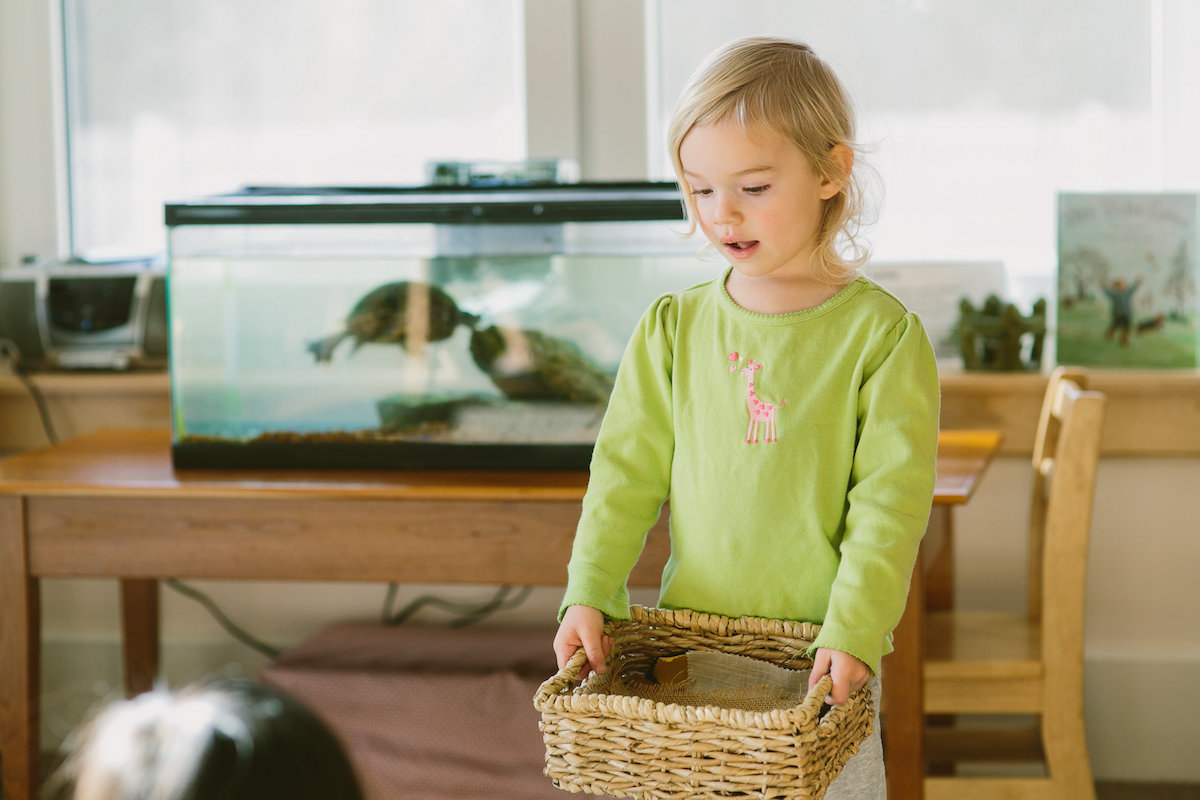The number of Montessori schools in the U.S. is growing, and key Montessori ideas are being integrated into many public schools and universities. Along with growing interest and acceptance, there are also questions and misconceptions. Here are some of the questions we hear most often.
Montessori is a preschool system, isn't it?
Montessori schools may be best known for their programs with young children, but the underlying educational method describes programs for students up through high school.
Are Montessori schools religious?
No. Montessori educates children without reference to religious denomination. As a result, Montessori classrooms are diverse, with representation from all peoples, cultures and religions.
How many Montessori schools are there?
The North American Montessori Teachers Association (NAMTA) estimates that there are about 4,500 Montessori schools in the United States and about 20,000 worldwide.
What are some differences between traditional learning methods and the Montessori method?
There are many differences, including:
- Montessori programs work on three-year cycles. Children stay in the same classroom and have the same teacher for three years.
- Montessori classrooms have children of mixed ages. Multi-age classrooms encourage cooperative learning and allow for broad emotional and social development.
- Because children develop and master skills at their own pace, Montessori students work according to their developmental levels rather than their biological ages.
- The primary role of the Montessori teacher is not the transmission of information, but rather to nurture development and to guide activities, resources, and materials that allow the child to take the next step in learning.
- Montessori students are free to move around the classroom instead of staying at desks.
- The Montessori teaching materials are unique. Most were developed by Dr. Montessori to meet specific developmental needs of children of different ages.
I hear the children calling their lessons "work". Do the children have fun?
The term "work" is used in the classrooms to give dignity and respect to the students' activities. Their time is spent on purposeful lessons. The children have free choice to decide what work they will complete. They have many options, and are empowered to do what interests them most. And yes, they do have fun! Maria Montessori said "Play is the work of the child."
Montessori classrooms look so different. Where are the students' desks? Where do the teachers stand?
The different arrangement of a Montessori classroom mirrors the difference in Montessori education from traditional education. Rather than putting the teacher at the focal point of the class, with children dependent on her for information and activity, the classroom shows a literally child-centered approach. Children work at tables or on floor mats where they can spread out their materials, and the teacher circulates about the room, giving lessons, answering questions or resolving issues as they arise.
Why is the Preschool and Kindergarten classroom sometimes referred to as the "Children's House"?
Maria Montessori called her first school in Rome the "Casa dei Bambini", or the "Children's House". It truly was just that. Everything was designed for 3 to 6 year olds, with child-size furniture and materials. To this day, Montessori preschool & kindergarten classrooms around the world are referred to as Children‘s House classrooms.
Aren't Montessori children free to do whatever they want in the classroom? How do you ensure that each one gets a well rounded education?
Montessori children are free to choose within limits, and have only as much freedom as they can handle with appropriate responsibility. The classroom teacher and assistant ensure that children do not interfere with each other, and that each child is progressing at an appropriate pace in all subjects.
Are Montessori schools as academically challenging as traditional schools?
Yes. Montessori classrooms encourage deep learning of the concepts behind academic skills rather than rote practice of abstract techniques.
Without objective measurements like grades, how do you assess a Montessori child's performance?
Classroom teachers keep extensive records of lessons given and work practiced, and also offer the benefit of their individualized observations of the child’s work in the classroom. Parents of children at all levels at Hollis Montessori meet at least twice a year in conference with their children's teachers to learn more about classroom work and behavior. Because students work independently and one-on-one with the teachers, assessment happens all day, everyday, through careful observation of each individual child.
Is it true Montessori schools have no textbooks and no homework?
Montessori education is hands-on; children work with specially designed materials in the classroom before learning abstract pencil-and-paper methods. As students grow into the Upper Elementary and Upper School years, written resources make more and more appearances, though usually in the form of novels or reference books. Students tend to do their own research rather than relying on a class textbook’s descriptions.
Montessori homework does not necessarily show up on worksheets or on assignment pages at the end of each day, but yes, Montessori schools do have homework. Many activities are considered to be appropriate homework. These include activities such as reading, keeping a garden, taking music lessons, taking a hike, keeping a journal, or playing a sport. In addition to this work, students may be asked to complete components of some class projects at home. We also encourage parents not to over-schedule a child’s time and to leave plenty of time for free play.
Upper School students have homework such as math problems, writing and reading assignments, Spanish, and research projects.
How do Montessori graduates fare in the "real world"?
They do very well. Increasingly, the world of modern education and business favors creative thinkers who combine personal initiative with strong collaborative skills: exactly the characteristics which Montessori education nurtures. Cultural movers and shakers from Julia Child to the founders of Google have spoken of how their childhood experiences in Montessori gave them not only the ability to work cooperatively in existing settings, but also the skills of confidence, creativity, and communication needed to make innovative and ground-breaking changes.
